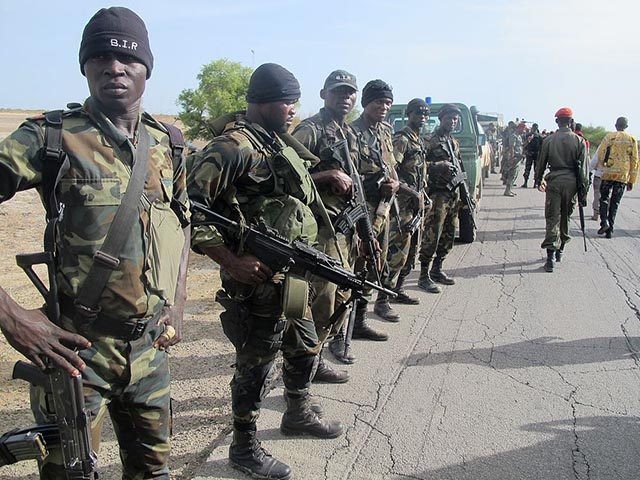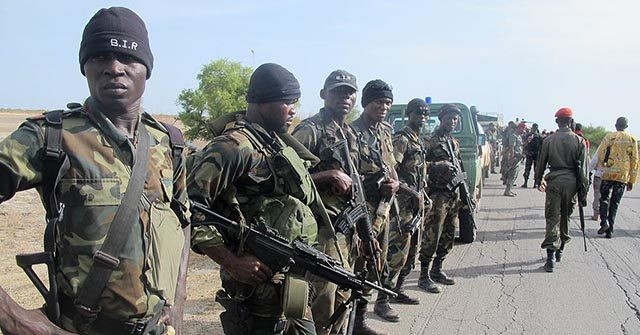
Members of the Nigerian Islamic terror group Boko Haram have established close ties in neighboring Cameroon’s political and business circles in recent months, a Cameroonian government official said, Voice of America (VOA) reported over the weekend.
“Midjiyawa Bakari, governor of Cameroon’s Far North region, on Nigeria’s border, says that within the past two months, Boko Haram has been establishing ties with top officials of his region. He spoke via a messaging app from the northern town of Maroua,” the U.S. government-funded broadcaster reported on December 19.
“Security reports indicate that Boko Haram has infiltrated some political, business, and elite circles along Cameroon’s northern border with Nigeria,” Bakari told VOA.
“Boko Haram accomplices in the communities supply food and money for the terrorists to procure weapons,” according to Bakari, who added that the Cameroon military “has been assigned to arrest those who have established ties with Boko Haram.”
VOA said it could not independently confirm Bakari’s allegations. While the governor did not disclose how many people have been arrested in Cameroon for establishing ties with the Nigerian terror group, local media reported last week that the Cameroon military arrested a former member of the nation’s parliament, Blama Malla, “for alleged ties with the Boko Haram. He has been detained in the northern town of Mora,” according to the broadcaster.
Cameroon authorities have allegedly accused Malla of supplying cattle and money to Boko Haram. Malla is a member of Cameroon President Paul Biya’s ruling Cameroon People’s Democratic Movement party.
Cameroon troops arrested Malla “after his cousin, a member of a local militia in the border town of Kolofata in the Mayo Sava administrative unit, was seen transporting 10 cattle to a border area where Boko Haram fighters hide.” The cousin confessed to Cameroon authorities “that he had received orders from Malla to supply the cattle to Boko Haram,” local media reported.
The Cameroon government has not issued a statement on Malla’s alleged arrest.
“There is suspicion and fear that these towns have already been infiltrated [by Boko Haram],” the BBC reported of Cameroon towns along the Nigerian border that had recently suffered from attacks by the terror group in 2014.
“Boko Haram is not just carrying out raids and abductions, they now control entire towns just across the border in Nigeria, and the very real concern here [in Cameroon] is that the militants are seeking to raise the flag of their so-called caliphate in Cameroon as well,” the British broadcaster added. At the time of the report, Cameroon’s elite battalion had “lost dozens of its men” in its fight to protect Cameroon towns from Boko Haram attacks.
Nigerian officials, including former president Goodluck Jonathan, have long accused Boko Haram of infiltrating government and military ranks within Nigeria. According to VOA, Cameroon officials have also accused Boko Haram of similarly sabotaging militias formed to fight the terrorists throughout the Lake Chad Basin. The Chad Basin connects Nigeria’s northeastern Borno State, Boko Haram’s historic stronghold, with neighboring Cameroon, Chad, and Niger.
Boko Haram terrorists sparked an Islamic insurgency in northern Nigeria in 2009. Since then, the jihadi group has perpetrated mass kidnappings and massacres as part of a larger effort to establish an Islamic caliphate in the region. The insurgency has spread throughout the Chad Basin over the past decade, killing an estimated 36,000 people and displacing about two million others according to the U.N.





